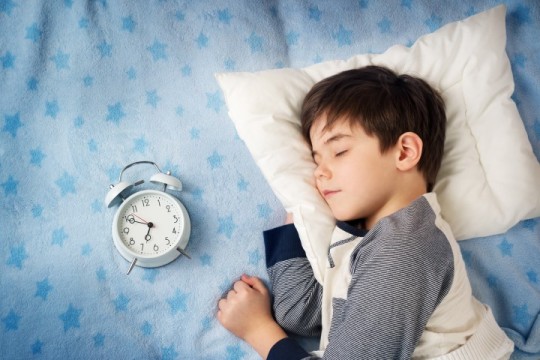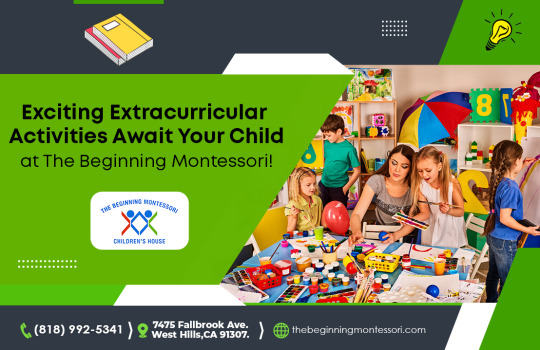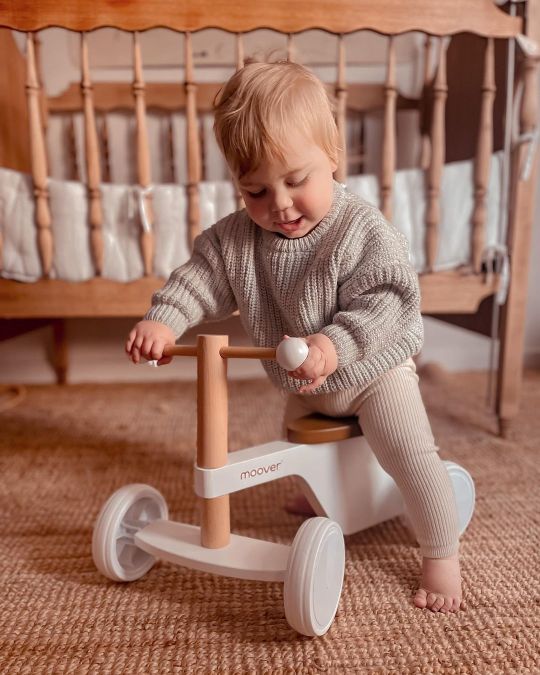#playbasedlearning
Photo

Are you looking for toys that are intended for academic reasons while also offering fun and learning? 😊These beautifully crafted wooden toys are created with a focus on engagement - how the toys can connect to children's daily lives, how the experience can be shared with the rest of the family. Each toy is lovingly made to the highest standard with sustainably sourced natural materials 🪵 that can be passed down for generations. What are your favorite toys from your childhood? 🧸🧡 #woodentoys #montessori #reggioinspired #waldorf #homeschool #homebasedlearning #playbasedlearning #earlychildhoodeducation #mariamontessori #imagineryplay #ecofriendly #naturalwood #sustainable #giftshop #educationaltoys #funtoys #familytime #kidsapproved #beautifultoys #moonpicnic (at Orange County, California) https://www.instagram.com/p/ChfUEK8pShU/?igshid=NGJjMDIxMWI=
#woodentoys#montessori#reggioinspired#waldorf#homeschool#homebasedlearning#playbasedlearning#earlychildhoodeducation#mariamontessori#imagineryplay#ecofriendly#naturalwood#sustainable#giftshop#educationaltoys#funtoys#familytime#kidsapproved#beautifultoys#moonpicnic
10 notes
·
View notes
Photo

Our legendary free gift promo is back!! Get free gifts valued between $40-$75 with select purchases. Swipe to see some of our promo’s and for the full offering, click on our bio link 😍🙌🥰 ⠀⠀⠀⠀⠀⠀⠀⠀⠀ ⠀⠀⠀⠀⠀⠀⠀⠀⠀ #earlylearning #earlychildhoodeducation #earlychildhoodeducator #teachersofinstagram #montessori #montessoritoddler #montessoriathome #montessoribaby #montessoriinspired #montessorikids #montessoritoys #reggioinspired #imaginativeplay #invitationtoplay #woodentoys #waldorfinspired #kidsroominspo #kidsinteriors #playbasedlearning #aussiemum #melbournemum #sydneymum #brisbanemums #perthmumsandbubs #tasmaniamums #adelaidemums #shopsmall #shoplocal https://www.instagram.com/p/CqZ2rI9u3iP/?igshid=NGJjMDIxMWI=
#earlylearning#earlychildhoodeducation#earlychildhoodeducator#teachersofinstagram#montessori#montessoritoddler#montessoriathome#montessoribaby#montessoriinspired#montessorikids#montessoritoys#reggioinspired#imaginativeplay#invitationtoplay#woodentoys#waldorfinspired#kidsroominspo#kidsinteriors#playbasedlearning#aussiemum#melbournemum#sydneymum#brisbanemums#perthmumsandbubs#tasmaniamums#adelaidemums#shopsmall#shoplocal
6 notes
·
View notes
Text
Helping Children Develop Healthy Sleep Habits | GrapplerTodd | Indian-made Wooden Toys

Developing healthy sleep habits is crucial for children's physical and mental development. Sleep deprivation can lead to behavioural problems, difficulty concentrating, and impaired cognitive function. Here are some strategies parents can use to help their children develop healthy sleep habits.
Establishing a consistent bedtime routine can help children prepare for sleep. The routine can include activities such as a warm bath, reading a story, or listening to calming music. Limiting screen time before bedtime can also improve sleep. The blue light emitted from electronic devices can disrupt sleep by suppressing melatonin, a hormone that regulates sleep. Ensure that your child is getting enough physical activity during the day. Regular exercise can help children fall asleep easily and improve sleep quality.
Creating a comfortable sleep environment is also important. The room should be cool, dark, and quiet. A comfortable mattress and pillows can also improve sleep quality. Lastly, parents should ensure their children get enough sleep by following age-appropriate sleep guidelines. Young children may need up to 14 hours of sleep a day, while teenagers may require 8-10 hours.
Incorporating these strategies into a child's routine can help develop healthy sleep habits. By prioritizing sleep, parents can improve their children's overall well-being and ensure they are well-rested and ready to learn and play.
#toys for kids#parentingtips#child development#montessori education#woodentoys#educational toys for toddlers#parenting done right#playbasedlearning#toddler#toddler life
3 notes
·
View notes
Text
Cambridge International School, Kullu - The Best Kindergarten School in Kullu Valley

Choosing the right kindergarten school for your child is a crucial decision that lays the foundation for their future academic success and personal development. In the scenic Kullu Valley,Cambridge International School stands out as the best kindergarten school, dedicated to providing a nurturing and stimulating learning environment where young minds can flourish. Let's explore why Cambridge International School is the top choice for parents seeking the best early education for their little ones.
A Warm and Welcoming Environment
At Cambridge International School, Kullu, we understand that the early years of a child's education are paramount. Our kindergarten program is designed to provide a warm, supportive, and child-centered environment where every child feels safe, valued, and encouraged to explore and learn. Our experienced and caring teachers foster a sense of belonging and ensure that each child receives the individual attention and guidance they need to thrive.
Play-Based Learning Approach
We believe that children learn best through play. That's why our kindergarten curriculum is based on a play-based learning approach that emphasizes hands-on exploration, creativity, and problem-solving. Through a variety of engaging activities, games, and experiences, children develop essential skills such as communication, collaboration, critical thinking, and motor skills, laying a strong foundation for future academic success.
Holistic Development
At Cambridge International School, we believe in nurturing the whole child—intellectually, socially, emotionally, and physically. In addition to academic learning, our kindergarten program focuses on fostering social skills, emotional intelligence, and character development. Through group activities, storytelling, music, art, and outdoor play, children learn to express themselves, interact with others, and develop empathy and resilience.
Integrated Curriculum
Our kindergarten curriculum is carefully designed to integrate key learning areas such as language development, numeracy, science, arts, and physical education. Through thematic units and hands-on experiences, children explore various concepts and topics in a meaningful and interconnected way. Whether it's learning about shapes and colors, discovering the wonders of nature, or expressing themselves through art and music, every day is an opportunity for discovery and growth.
Parental Involvement
We recognize the importance of collaboration between home and school in a child's early education journey. That's why we encourage parental involvement and communication every step of the way. Parents are invited to participate in school activities, workshops, and events, and our open-door policy ensures that parents are always welcome to share their insights, concerns, and aspirations for their child's education.
Conclusion
Choosing the best kindergarten school is a crucial decision that sets the stage for your child's lifelong love of learning. At Cambridge International School, Kullu, we're committed to providing a nurturing, stimulating, and inclusive learning environment where every child can thrive and reach their full potential. With our play-based learning approach, holistic curriculum, experienced teachers, and strong emphasis on parental involvement, we ensure that your child receives the best possible start to their educational journey. Join us at Cambridge International School, Kullu, and watch your child blossom into a confident, curious, and compassionate learner.
#KindergartenEducation#EarlyChildhoodDevelopment#CambridgeInternationalSchool#PlayBasedLearning#HolisticDevelopment#ParentalInvolvement
0 notes
Text
Good news for parents!
Want to make this summer memorable for your child? Beat summer boredom and spark your child's curiosity at Valley Oak Montessori's Kids Summer Programme!
From June 17th to August 14th, Monday-Friday, from 8 AM to 6 PM, this program offers a fun and enriching experience for children. With unique themes explored each week, your child will dive into ocean life, create artistic masterpieces, explore music and yoga, and enjoy all the joys of summer - outdoor fun, exciting field trips, and even carnivals!
Grab the chance to book a tour, and meet our Director. How to enroll? Fill out a simple form, submit it, and secure your child's spot. Don't miss out - enroll your kids today and give them a splashing summer they'll never forget!
#montessorimagic#preschoolwonders#curiosityignited#playbasedlearning#exceptionaleducation#littleexplorers#valleyoakmontessori#sanjose#sanjosecalifornia#everygreen#santaclara#exploreengagegrow#prekindergarten#toddler#learning#daycare
0 notes
Text
We offer a nurturing environment for playgroup and Jr. KG & Sr. KG to learn and grow. Our play-based curriculum sparks curiosity, fosters social skills and creativity, and ignites a lifelong love of learning.
#preschool#earlylearning#daycare#preschoolactivities#learningthroughplay#kindergartenprep#aurangabadpreschool#playbasedlearning#playfullearning#exploratoryplay#sensoryplay#creativelearning#experiencedteachers#caringteachers#nurturingenvironment#earlychildhoodeducation#socialdevelopment#loveoflearning#curiosity#Childdevelopment#creativity
0 notes
Text
Exploring Montessori of Woodland Hills: Where Learning Begins

Discover the transformative journey at Montessori of Woodland Hills, where the essence of childhood blossoms through the nurturing environment of Beginning Montessori Children's House. Experience the beauty of holistic education in the heart of Woodland Hills.
#thebeginningmontessori#motivational#preschool#preschoolactivities#toddler#playbasedlearning#montessoriactivity#homeschooling#kids#kidsactivities#montessorischool
0 notes
Text
Embarking on a Journey of Personal Growth: Explore the "10 Good Habits" Book by Prisha the Explorer

Personal growth and self-improvement has become increasingly essential. Many individuals seek guidance and inspiration from various sources, and one such beacon of wisdom is the book titled "10 Good Habits" by Prisha the Explorer. This literary masterpiece serves as a guide for those eager to cultivate positive habits and transform their lives. In this comprehensive exploration, we will delve into the key insights and transformative lessons offered by Prisha the Explorer in her quest to help readers build a foundation of good habits.
Chapter 1: Unveiling Prisha the Explorer
Before we dive into the profound teachings of "10 Good Habits," it's crucial to understand the author behind the book – Prisha the Explorer. A seasoned explorer, Prisha's journey of self-discovery and personal development has been the driving force behind her desire to share invaluable insights with the world. Her background, experiences, and the challenges she overcame are the cornerstones of the wisdom embedded in the pages of her book.
Chapter 2: The Power of Habits
The foundation of Prisha's teachings lies in the understanding of habits and their profound impact on our lives. In "10 Good Habits," she emphasizes the power of habits in shaping our thoughts, actions, and ultimately, our destinies. Drawing from scientific research and personal anecdotes, Prisha provides a compelling argument for the significance of cultivating positive habits to achieve lasting success and happiness.
Chapter 3: Learn 10 Good Habits
Prisha the Explorer takes readers on a journey through the ten transformative habits that form the core of her book. Each habit is carefully examined, explained, and accompanied by practical tips for implementation. From setting goals and practicing gratitude to fostering resilience and embracing continuous learning, Prisha provides a roadmap for individuals seeking to elevate their lives through intentional and positive actions.
Chapter 4: Goal Setting and Achievement
Setting meaningful goals is a fundamental aspect of personal development, and Prisha devotes a considerable portion of her book to this critical habit. She guides readers through the process of setting realistic and achievable goals, breaking them down into manageable steps, and staying committed to the pursuit of success. With anecdotes from her own adventures, Prisha illustrates the transformative power of goal-setting in her exploration of the world's most challenging terrains.
Chapter 5: Cultivating a Positive Mindset
Prisha the Explorer understands the pivotal role of mindset in shaping our experiences. In "10 Good Habits," she delves into the importance of cultivating a positive mindset as a key habit for personal growth. Through practical exercises and inspiring stories, she encourages readers to shift their perspectives, overcome limiting beliefs, and embrace a mindset that fosters resilience and optimism.
Chapter 6: The Habit of Gratitude
Gratitude is a potent force that has the ability to transform our outlook on life. Prisha emphasizes the habit of gratitude as a cornerstone for building a fulfilling and meaningful existence. Readers are guided through exercises that help them appreciate the present moment, acknowledge their blessings, and cultivate a grateful heart – a habit that can lead to increased happiness and overall life satisfaction.
Chapter 7: Embracing Continuous Learning
In a world that is constantly evolving, the habit of continuous learning is indispensable. Prisha explores the significance of embracing a growth mindset and the joy that comes from expanding one's knowledge and skills. Drawing from her own experiences as an explorer, she encourages readers to step out of their comfort zones, embrace new challenges, and view every experience as an opportunity for learning and personal development.
Chapter 8: Building Resilience
Life is full of uncertainties and challenges, and building resilience is a crucial habit for navigating these inevitable storms. Prisha shares her insights on developing resilience by embracing failure, learning from setbacks, and maintaining a positive outlook in the face of adversity. Through powerful stories of her own expeditions, she demonstrates how resilience can be a catalyst for personal transformation and growth.
Chapter 9: Nurturing Relationships
Human connections are at the heart of a fulfilling life. Prisha delves into the habit of nurturing relationships and the impact it has on overall well-being. She explores the importance of meaningful connections, effective communication, and the role of empathy in building strong and supportive relationships. Practical tips and heartfelt stories guide readers in fostering connections that enrich their lives.
Chapter 10: Taking Action: Implementing the Habits
The final chapter serves as a call to action, inspiring readers to implement the 10 good habits into their daily lives. Prisha provides a roadmap for integrating these habits gradually, celebrating small victories, and staying committed to the journey of personal growth. Through a step-by-step approach, she empowers readers to make lasting changes and embark on a transformative path toward a more fulfilling life.
"10 Good Habits" by Prisha the Explorer is more than just a book; it's a guide for those seeking to embark on a journey of personal growth and positive transformation. Through her own experiences and insightful teachings, Prisha has crafted a roadmap that empowers readers to cultivate habits that lead to success, happiness, and a life well-lived. As we conclude our exploration, we are reminded that the journey of personal development is ongoing, and with Prisha's guidance, we are better equipped to navigate the path ahead with purpose and intention.
If you want to buy “learn about 10 good habits” book please visit our website.
#prisha the explorer#kidsactivities#kids#kidsofinstagram#learningthroughplay#preschool#kidsfashion#earlylearning#montessori#kidscrafts#children#fun#preschoolactivities#toddleractivities#homeschool#parenting#homeschooling#sensoryplay#playbasedlearning#learning#education#activitiesforkids#play#kidsart#kidsfun#momlife#kindergarten#montessoriathome#playmatters#kidsplay
0 notes
Text

Trends That Are Transforming Early Childhood Education
Dive into our insightful article to explore the latest strategies and techniques that are transforming the way children learn and grow.
#EarlyChildhoodEducation#EducationTrends#Phonics#PlayBasedLearning#SocialEmotionalDevelopment#NatureBasedLearning
0 notes
Text
#playbasedlearning#childcare#erzieherin#baby#preschoolteacher#teacherlife#fun#play#kindergartenactivities#erzieher#teachers#art#backtoschool#love#momlife#sensoryplay#iteach#anaokulu#m#teachersofig#iteachtoo#firstgrade#montessoriathome
0 notes
Text
The Magic Of Play-Based Learning In Preschool Education

When we picture a classroom, the familiar scene unfolds: teachers leading, students following. This traditional approach has long been the norm, but is it the key to unlocking the full potential of our little learners? In the early stages of education, particularly in preschool, a more playful approach might just be the missing puzzle piece.
Rethinking Early Education: The Transformative Essence Of Play-Based Learning
Play-based learning isn't just about giggles and games; it's a cornerstone of a child's development. This approach invites children to learn through play, stoking their curiosity and nurturing creativity along the way.
Research suggests that play-based learning significantly enhances language development, self-directed learning, and environmental awareness. A study comparing Montessori programs, which weave in elements of play-based learning, with traditional education programs found that the former cultivates stronger self-directed behaviors among students.
Decoding The Contrasts: Traditional Academic Methods Vs. Play-Based Learning In Preschools
At the heart of the distinction between traditional academics and play-based learning is the role of the child. Traditional teaching treats children as passive recipients of knowledge, while play-based learning empowers them to be active participants in their education.
For instance, in a traditional lesson, a teacher might demonstrate how to count objects, and the children would mimic the exercise. In contrast, a play-based setting might involve a counting game, making learning the same skill more engaging and enjoyable.
Captivating Minds And Hands: The Crucial Role Of Hands-On Experiences In Preschool Learning
Hands-on experiences are vital in play-based learning, contributing significantly to the development of children's cognitive and motor functions. When children directly interact with their environment—whether building a tower with blocks, painting a picture, or engaging in role-play—they're not just having fun but also honing crucial skills.
A study on computer-assisted instruction in preschool education found that integrating technology into hands-on, meaningful teaching significantly benefits young learners. Similarly, another study highlighted that incorporating tablet computers into early childhood classrooms, when used appropriately, complements traditional teaching practices.
Preparing For Preschool: Embracing A Playful Curriculum For Holistic Child Development
As we prepare our little ones for preschool, it's essential to consider what learning environment best supports their growth. A play-based curriculum for preschoolers isn't merely enjoyable; it's profoundly beneficial, instilling a lifelong love for learning.
And while there's a place for traditional academics, it's clear that play-based learning offers unique advantages in preschool education. By embracing this approach, we can provide our children with a well-rounded educational foundation that caters to their natural curiosity and zest for exploration. After all, education should be a delightful journey of discovery, and play-based learning is the compass guiding our youngest learners toward a brighter future.
Bubbles Academy Preschool — Bucktown
Address: 2184 N Elston Ave, Chicago, IL 60614, United States
Phone: +1 312–944–7677
0 notes
Text

Thank you so much @hippppieatheart for sharing!!! So glad your baby loves our #new ride on bike.
Shop Now: moovershop.com
#baby#kids#toys#toy#kidsfashion#mom#kid#momlife#toddler#bike#bikeride#learning through play#playbasedlearning#invitationtoplay#invitationtolearn
0 notes
Photo

Tenderleaf polar animals are new in-store and come with 10 arctic wooden animals figurines and a gorgeous display shelf! A great way to educate kids on conservation and North Pole animals. They include the following:- orca, a narwhal, a snow hare, an arctic fox, a king penguin, an owl, a white stoat, a walrus, an elk and of course a polar bear ⠀⠀⠀⠀⠀⠀⠀⠀⠀ Which is your favourite animal? ⠀⠀⠀⠀⠀⠀⠀⠀⠀ ⠀⠀⠀⠀⠀⠀⠀⠀⠀ #earlylearning #earlychildhoodeducation #animalfigurines #arctic animals #educationaltoys #earlychildhoodeducator #teachersofinstagram #montessori #montessoritoddler #montessoriathome l #montessoriinspired #montessorikids #montessoritoys #reggioinspired #imaginativeplay #invitationtoplay #woodentoys #kidsroominspo #kidsinteriors #playbasedlearning #aussiemum #melbournemum #sydneymum #brisbanemums #perthmumsandbubs #tasmaniamums #adelaidemums #shopsmall #shoplocal https://www.instagram.com/p/CkDHsiBusx9/?igshid=NGJjMDIxMWI=
#earlylearning#earlychildhoodeducation#animalfigurines#arctic#educationaltoys#earlychildhoodeducator#teachersofinstagram#montessori#montessoritoddler#montessoriathome#montessoriinspired#montessorikids#montessoritoys#reggioinspired#imaginativeplay#invitationtoplay#woodentoys#kidsroominspo#kidsinteriors#playbasedlearning#aussiemum#melbournemum#sydneymum#brisbanemums#perthmumsandbubs#tasmaniamums#adelaidemums#shopsmall#shoplocal
6 notes
·
View notes
Text
🏫🌱 Beyond the Classroom: Join the journey of discovery and friendship at Bellevue preschools! 🌟 #BellevueCommunity #ChildhoodWonder
#bellevuepreschools#EarlyChildhoodEducation#NurturingYoungMinds#playbasedlearning#parentalinvolvement
0 notes
Text
Child Development Affects Mental Health:

Here are some ways in which child development can affect mental health:
Attachment: Healthy attachment between a child and their caregiver is vital for emotional well-being. Secure attachment can lead to better emotional regulation and interpersonal relationships in adulthood.
Early Experiences: Traumatic experiences during childhood, such as abuse, neglect, or exposure to violence, can have long-lasting effects on mental health, increasing the risk of conditions like anxiety, depression, and PTSD.
Social Skills: Social development during childhood helps children learn how to interact with others. Difficulties in this area can lead to social anxiety or difficulty forming relationships later in life.
Cognitive Development: Cognitive development, including the ability to problem-solve and cope with stress, can influence mental health. Children who develop effective coping strategies may have better mental health outcomes.
Parental Influence: Parenting styles and the quality of the parent-child relationship can shape a child's self-esteem and sense of self-worth, which can impact their mental health in the long run.
School Experiences: Academic pressure, bullying, or difficulties in school can contribute to stress and anxiety, affecting a child's mental health.
Genetics: Genetic factors play a role in mental health. Children with a family history of mental health issues may be more susceptible to these conditions.
Regarding TalkToAngel counseling, it's important to note that early intervention and support can make a significant difference in a child's mental health.
#childdevelopment#parenting#children#education#earlylearning#parentingtips#kids#learningthroughplay#preschool#childcare#earlychildhoodeducation#learning#kidsactivities#playbasedlearning#positiveparenting#play#mentalhealth#earlychildhood#momlife#family#gentleparenting#parenthood#toddlerlife#baby#finemotorskills#earlyyears#sensoryplay#toddlers#childhood#montessori
1 note
·
View note
Text
Nurturing Fine Motor Skills: Unveiling the Wonders of Child Development
Child development is a fascinating journey filled with milestones and growth. One critical aspect of development is the refinement of fine motor skills. In this blog, we will explore the significance of fine motor skills and provide insights on how to nurture and enhance them in children. From scribbling to buttoning shirts, the mastery of fine motor skills opens a world of possibilities for young learners.
Understanding Fine Motor Skills:
Fine motor skills involve the coordination and control of small muscles, particularly in the hands and fingers. These skills are essential for performing everyday tasks such as writing, drawing, tying shoelaces, using utensils, and more. They require precision, dexterity, and hand-eye coordination. Developing these skills not only supports practical activities but also lays the foundation for cognitive and academic growth.
Stages of Fine Motor Development:
Fine motor development progresses in stages, with each stage building upon the previous one. In the early years, infants explore their surroundings by grasping objects, eventually progressing to purposeful reaching and grabbing. Toddlers refine their skills by manipulating objects and attempting basic scribbling. Preschoolers further develop their fine motor abilities by mastering activities like cutting with scissors, using utensils, and engaging in intricate artwork.
Importance of Fine Motor Skills in Child Development:
Fine motor skills play a vital role in various aspects of a child's development:
Cognitive Development: As children manipulate objects, they develop cognitive skills such as problem-solving, spatial awareness, and logical thinking
Language and Literacy: Fine motor skills are closely linked to early writing and reading abilities. The ability to hold a pencil, form letters, and turn pages requires dexterity and control.
Self-Care and Independence: By mastering fine motor skills, children gain independence in self-care tasks like dressing, feeding, and grooming, boosting their self-confidence and autonomy.
Handwriting: Strong fine motor skills are crucial for legible handwriting. Proper pencil grip, control of letter formation, and coordination between hand and eye contribute to effective writing.
Artistic Expression: Fine motor skills enable children to express their creativity through drawing, painting, sculpting, and other artistic activities. This fosters imagination, self-expression, and emotional development.
Nurturing Fine Motor Skills:
Now that we understand the significance of fine motor skills, let's explore some practical ways to nurture and enhance them in children:
Manipulative Play: Provide age-appropriate toys and activities that involve sorting, stacking, threading beads, building blocks, and puzzles. These activities enhance hand-eye coordination and finger strength.
Sensory Play: Engage children in sensory activities like playing with playdough, finger painting, sand or water play. These experiences stimulate tactile senses and develop finger control.
Fine Motor Games: Incorporate games that require precise finger movements, such as picking up small objects with tweezers or transferring items with tongs. These activities refine hand movements and improve coordination.
Arts and Crafts: Encourage children to engage in art projects involving cutting, tearing paper, gluing, and coloring. These activities promote hand strength, control, and creativity.
Everyday Tasks: Involve children in age-appropriate daily tasks like pouring drinks, buttoning shirts, tying shoelaces, or opening containers. These activities build practical skills while refining fine motor abilities.
To sum it up:
Nurturing fine motor skills is a crucial aspect of child development. By understanding the stages of development and the importance of these skills, we can provide children with meaningful experiences and opportunities for growth. Through manipulative play, sensory activities, fine motor games, arts and crafts, and everyday tasks, we can help children enhance their fine motor abilities,
#FineMotorSkills#ChildDevelopment#MotorDevelopment#HandEyeCoordination#NurturingSkills#EarlyLearning#CognitiveDevelopment#Independence#ArtisticExpression#SensoryPlay#PracticalTasks#Creativity#HandwritingSkills#GrowthandDevelopment#ChildhoodJourney#MotorMilestones#HandStrength#FingerControl#PlayBasedLearning#ParentingTips#LearningThroughPlay
0 notes